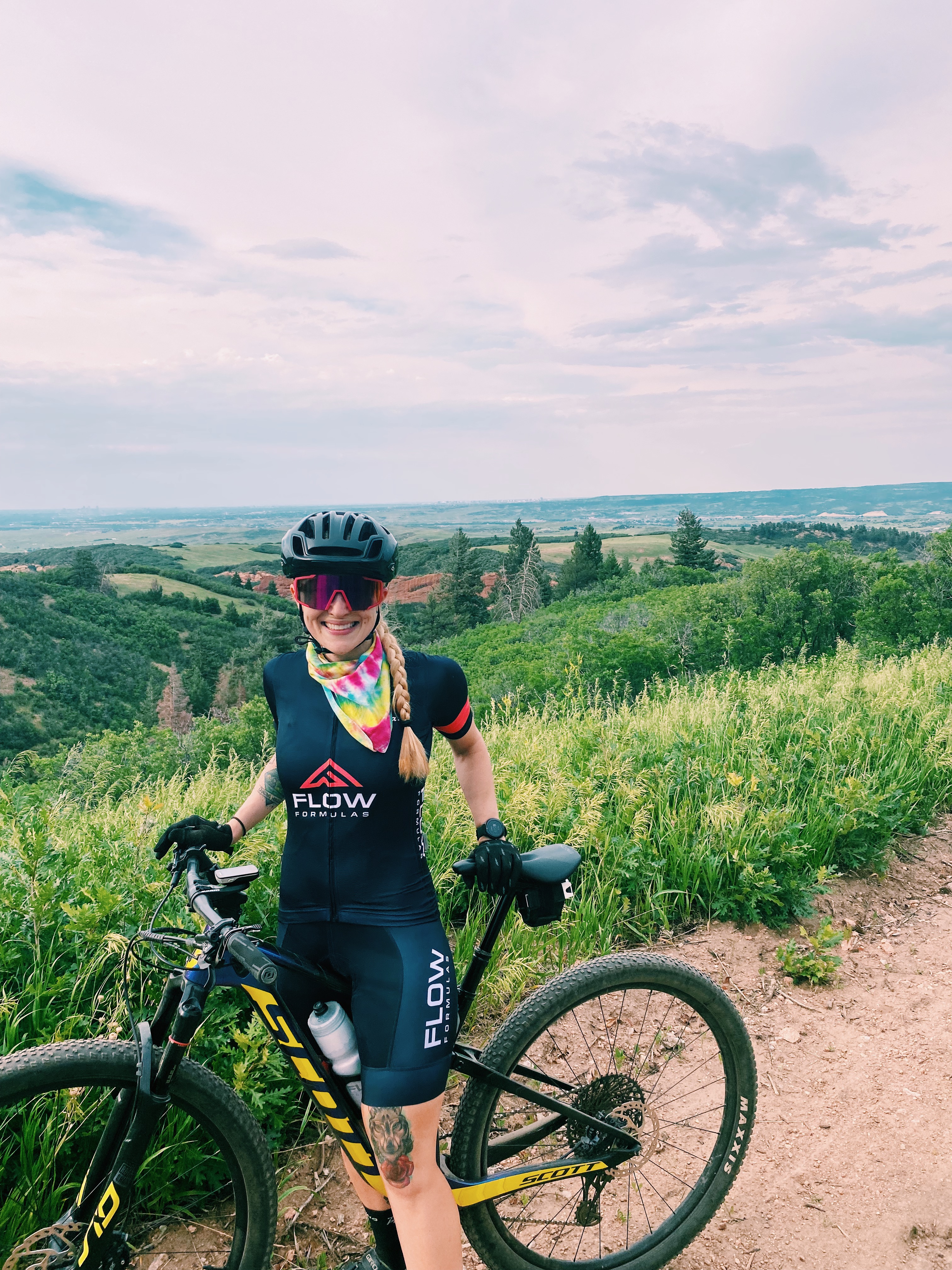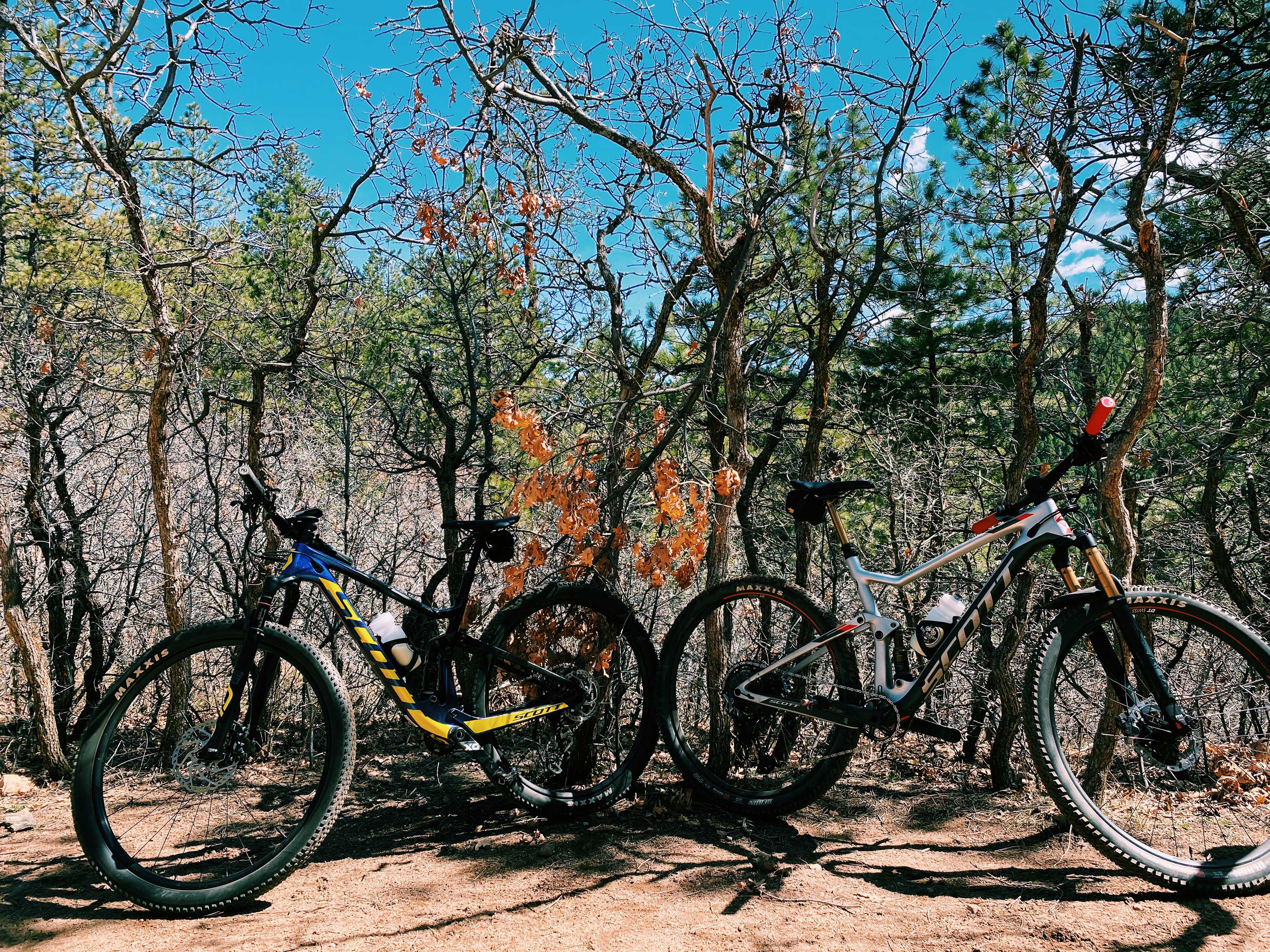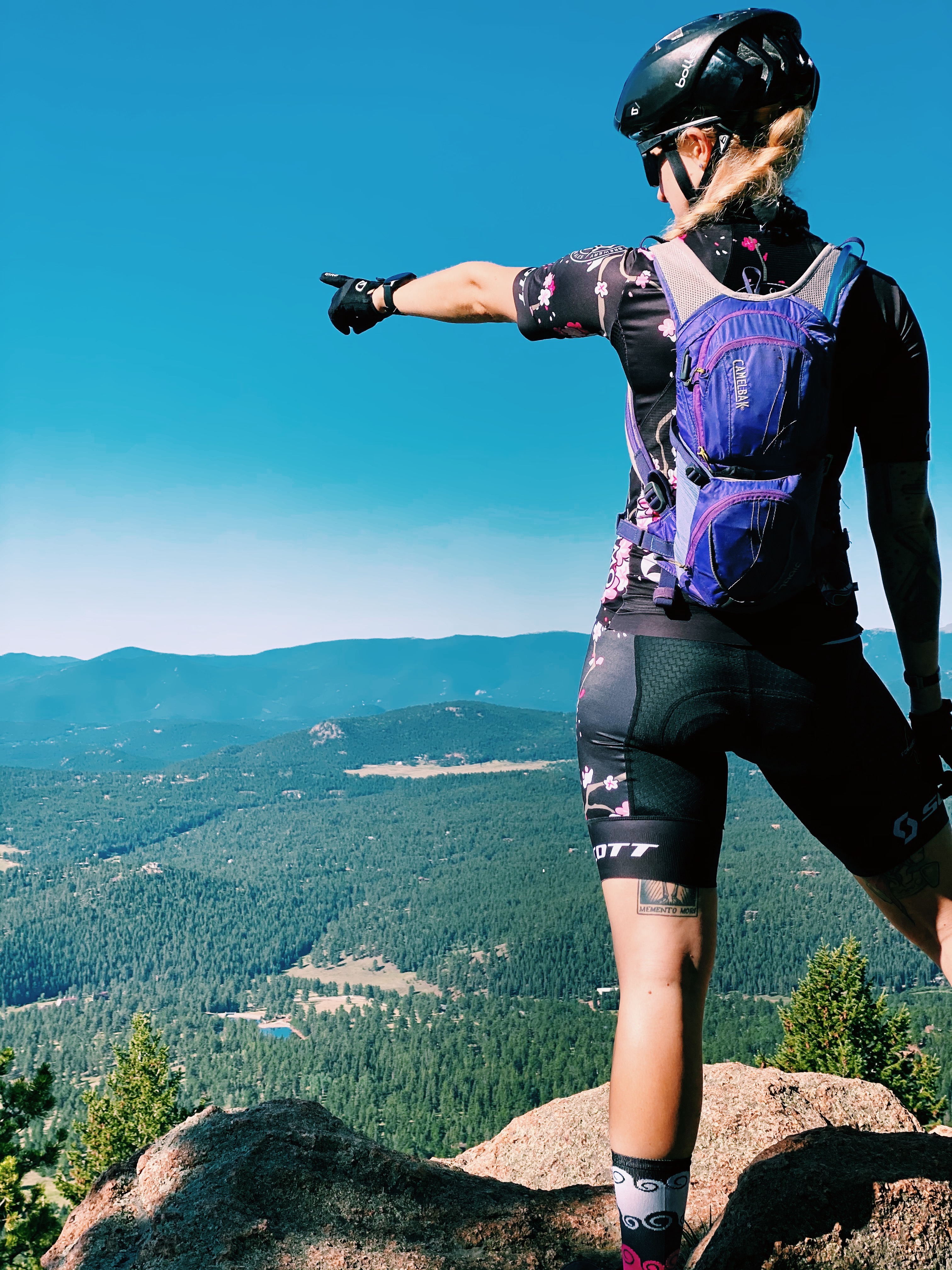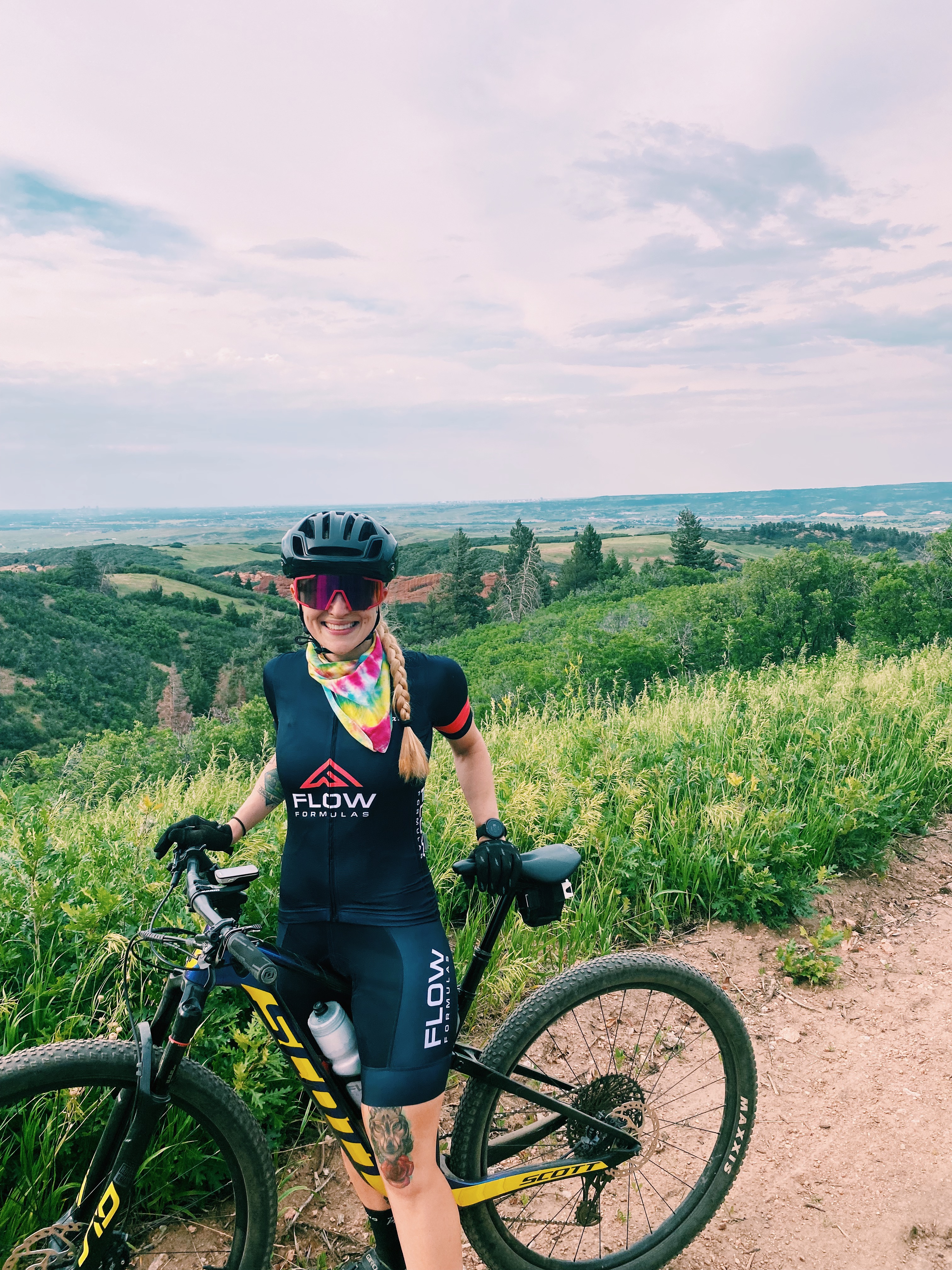Learning To Let Go (Of The Brakes And The Past)
Descending the 14% grade hill, my fingers ached as I white-knuckled the handlebars. I dropped my saddle, as if it’d give me newfound confidence. I leveled my feet, as if pointing my heels down would help me balance. I leaned as far back as my arms would allow, as if that’d somehow keep me upright.
I imagined flying over my handlebars, ricocheting off jagged rocks, only to land on my neck. I might have been an amateur mountain biker, but I was a professional at holding onto things. Regrets, mistakes, and especially brakes.
My mind has always been my biggest obstacle – bigger than any rock feature I’ve ever faced.
Give Up The Need For Certainty and Control
Most (all?) of us need to feel certain we can avoid pain, whether that’s emotional or physical. It’s why people like me seek certainty and yearn for control. I gripped my brakes on descents to have control. I wanted (that false sense of) certainty that I wouldn’t crash.

Same goes for letting go of things from the past. When we let go of the past, it means accepting the uncertainty of the future. We have to let go of what’s familiar (the past and the feelings it brings up) to move forward and let go of the control.
I realized it’s easier to let go, relax my upper body, and let the bike make its way around the loose, sandy hairpin turns. To stop the jagged roots, sharp rocks, and steep descents from intimidating me. And to trust myself and the bike to get me down the trail in one piece.
Instead, I’d focus on the boulder right in front of me. I’d try to steer around it to avoid it in any way possible. But I’d hit the rock. And then I’d fall. It happened every time I tried to take too much control.
That’s always been my problem: lack of trust. I grabbed handfuls of brakes because I didn’t trust my bike and I certainly didn’t trust myself. I wanted control of the bike because it felt like I didn’t have it in my life.
Most days when I’m on the bike, I don’t worry about the mistakes I’ve made in the past or my perceived failures. I don’t worry about what I haven’t achieved when I’m navigating around roots and branches. It’s probably why I like mountain biking so much – I can finally shut off my monkey brain and focus on the trail in front of me.
We have to let go of the brakes to descend the mountain bike trail. When we finally let go of control, we can accept the present, roots and all.
Let Go Of Limiting Beliefs
I’ve once taught myself to stay in a constant negative feedback loop. I saw my mistakes and failures in the past as things that defined who I was in the present. Instead of having compassion for myself when I’d fall on the trail, I always met it with anger.
Limiting beliefs are the things you tie to yourself and your worth that hold you back from truly living. It’s like when I’d get on the mountain bike and any time I tried something new and fell, I’d say, “I ride road. I suck at mountain biking.” Those thoughts kept me from embracing the stunning world of mountain biking. It also kept me from trying a lot of new techniques because I was afraid of failing. I didn’t want to look stupid or made fun of for being a road cyclist.
For the longest time, I didn’t think I was good enough to handle steep descents and giant rocks. I’d tell myself I couldn’t do it, so I didn’t try riding over it. Instead, I’d hobble my way down the rocky trail, my friends waiting for me at the bottom.

I wasn’t someone who rolled with the flow. As a control freak, I gripped. My fingers would ache from how hard I’d hold the brakes and the handlebars. My shoulders were riddled with knots from always being so rigid. It’s the same thing that happens when we hold on too tightly to the past.
I thought that by white-knuckling the brakes (and my limiting beliefs), I’d stay safe. This version of myself was familiar. I knew her. She rode road bikes and won bike races. She was pretty damn good at riding a road bike.
But she wasn’t good enough to take on technical climbs or choppy descents. And who was I if I wasn’t the best?
Mountain biking scared me. The kind of scared you feel in your stomach as the rollercoaster plummets down the track. It made me feel both alive and terrified of what could happen if I fell. I still feel this way sometimes.
I know my fears and worries were rooted in my mind. Like the limiting beliefs I had in thinking that I wasn’t good enough to mountain bike. I could only think of what would happen during my mountain bike ride. I’d break my neck. Or, I’d look stupid or slow others down. I worried about failing in races. You know, coming in anything other than first place.
This held me back. Still does. I took fewer chances because of this. I hesitated when it’d be easier to just go. I gripped too tightly. Braked too often. Then I wrecked because of it, which reinforced my fears.
Stop Being A Perfectionist And Accept Failure

I couldn’t let go of brakes and failures because I was a perfectionist. If I played the situation out over and over again, I thought I’d find a way I could have done it better.
I was always worried about falling off the bike during a technical climb or descent. It wasn’t just the pain I was afraid of — falling meant failing. It meant I wasn’t good enough. It meant I wasn’t perfect. So I’d sit at the top of hills, peer over the ledge, and think about all the ways I could fail, and how to avoid it.
Once, during a race, I was trying to stay on a competitor’s wheel, but then we came upon a trail full of loose shale. I watched her body as she traversed the section. Her upper body was square yet relaxed. Her elbows were out at 90 degrees. Her knees were bent and her butt pressed as far back as her arms would allow. She floated down the path.
I, on the other hand, grabbed my brakes and stared directly at the rock I wanted to avoid. My front tire knocked into it and my rear tire lifted up. The momentum threw my body forward, and I tumbled to the ground. I looked around to make sure no one saw me crash. The woman was gone.
I wiped off the dirt and dust and got back on the bike. I had enough. Squeezing the life out of the brakes didn’t give me more control over the bike. The opposite was true. I fell more often trying to slow myself down. I just had to let go — of the brakes and failures and mistakes. Then, I’d stop sabotaging myself.
I told myself these falls weren’t fails. They were how I was going to get better. It was time to look at disappointments and failures as opportunities for growth. Whether that was biffing it on a rowdy section of trail or regrets from my past. I had to keep moving forward.
I wouldn’t tie my identity (and happiness) to everything I’ve ever done wrong. All that’d matter is whether I showed up for myself and put my heart into it.
About the Gear Tester

Jessica McWhirt
Jessica is the Digital Marketing Specialist for Origin, online booking software automating and modernizing the outdoor adventure experience for tour guides and their clients. She loves to explore new trails throughout Colorado, whether that’s on her mountain, road, or gravel bike. If she’s not riding her bike, she’s writing about it.

